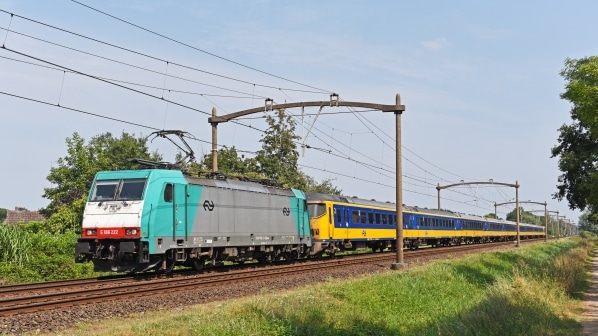SPAIN has become the fourth nation to ratify the Luxembourg Rail Protocol to the Cape Town Convention on International Interests in Mobile Equipment, following Luxembourg, Sweden and Gabon as well as the European Union (EU) in regard to its competencies.
The protocol is a global treaty which aims to simplify and reduce the cost of using private finance to procure rolling stock. It establishes a new international system for the recognition, prioritisation and enforcement of creditor and lessor rights, reducing the exposure of lenders to risk.
Together with the details of the privately-financed rolling stock to which they apply, these rights will be recorded in the International Rail Registry, based in Luxembourg, which is due to become operational during the fourth quarter of 2023.
“Having the registry up and running should encourage more states to swiftly ratify the protocol as they see it working and becoming a vital resource for lessors and secured lenders,” says Mr Howard Rosen, chairman of the Rail Working Group (RWG) which is driving forward implementation of the protocol.
The protocol has been signed but not yet ratified by France, Germany, Switzerland, Mozambique, Italy, South Africa and Britain. Other states working actively to adopt it include Kenya, Malta, Ethiopia, Finland, Ukraine and Mauritius.
Rosen told IRJ that the latest ratification marked “a very significant moment” for the Luxembourg Rail Protocol, “as Spain is a major player in the rail sector.” He also noted that Spain would be assuming the EU presidency in the second half of this year when the registry is due to go live.
Legislation to ratify the protocol in Britain would be included in a transport bill to be introduced in the next session of parliament, expected to be announced next week by the secretary of state for transport, Mr Mark Harper.
The British government is “totally committed” to implementing the protocol, Rosen says, given its potential to cut rolling stock leasing costs that are estimated to account for 40% of the cost of rail operations.
Meanwhile, work to develop the International Rail Registry is continuing, aiming to provide an online service available 24/7 and easily accessible by mobile phone.
Development has been undertaken by Regulis, which last month was taken over by ISC of Canada. ISC operates over 30 registries worldwide, including the Irish aircraft registry and the companies registry in Jersey.
“They are a great company, we have a lot of confidence in them,” Rosen says.
The registry would be open to all types of rolling stock, from wagons to LRVs, passenger coaches, locomotives and high-speed trains, with each vehicle issued with a unique 16-digit number under the unique rail vehicle identification system (Urvis).
This number would be displayed on a plate permanently attached to the vehicle which, when combined with GPS, would enable the owner to track the location of its asset.
Rosen hopes that reducing risk of loss will make private finance easier and cheaper to obtain for rolling stock, hopefully reducing the need for public expenditure and possibly even funding the fleets of new entrants. This would replicate how Europe’s low-cost airlines obtain their aircraft on operating leases.
“There is no need for governments to fund rolling stock,” he says. “The private sector has the capital and is willing to use it. Why should it be different for the railways?
“The entry into force of the protocol is very positive for the entire railway industry. Giving banks and lessors more security when funding rolling stock will lead to cheaper finance for operators.
“It will also save money for all industry stakeholders through simplified documentation and transactional structures.”
For detailed data on fleet orders from around the world, subscribe to IRJ Pro.

